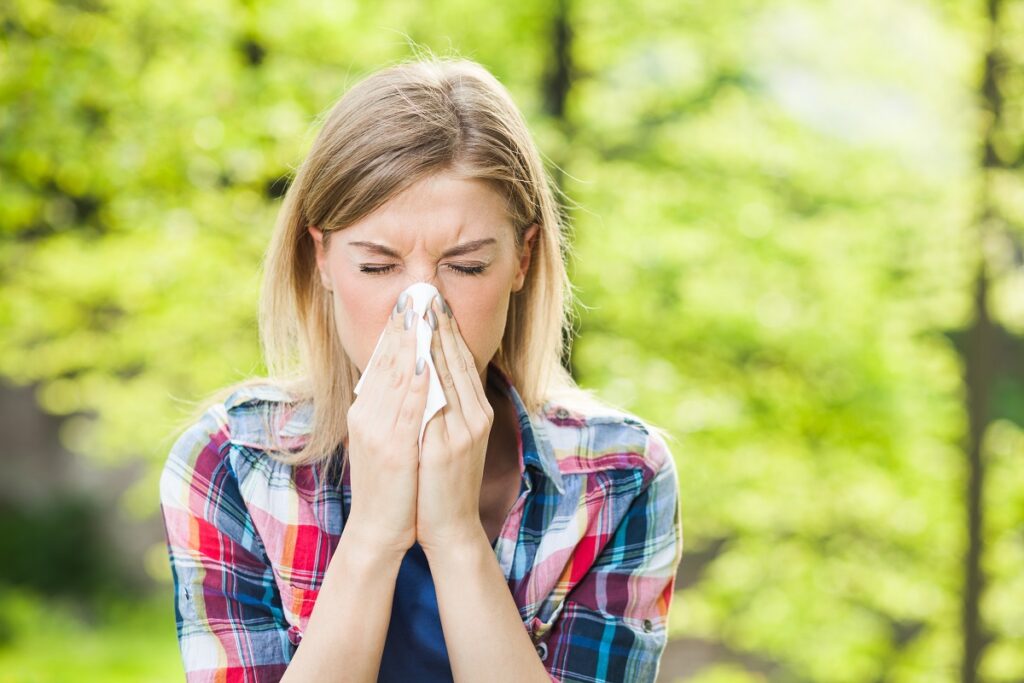- Allergies are common in the US, affecting 1 in 5 people.
- Symptoms of seasonal allergies can disrupt sleep, cause missed school days, and prevent outdoor activities.
- Mental health can also be impacted by allergies.
- To reduce allergic symptoms, maintain a healthy lifestyle and use air filters at home.
- Investing in allergy medication and cleaning clothes regularly can help manage symptoms during high pollen count days.
As the beautiful spring flowers bloom, so do the seasonal allergies. For some people, allergy season can be a minor inconvenience that is easily managed. However, for others, it can significantly disrupt daily life, especially for families with young children. Allergies can cause everything from itchy eyes, a runny nose, and sneezing to much more severe reactions. Here’s how allergy season can affect your family life and how you can alleviate the symptoms of allergies.
Seasonal Allergies in the U.S.
Allergies are a common disease in the U.S., affecting about one in five people. An estimated 60 million Americans suffer from allergies, making it the sixth leading chronic illness among children and adults. Seasonal allergies are the most common and are caused by exposure to pollen, mold spores, and other environmental factors.
Trouble Sleeping

The increase in pollen and allergens in the air can lead to a restless night’s sleep. Allergic reactions can cause congestion and difficulty breathing, which can affect your ability to sleep soundly. This can lead to fatigue, irritability, and lack of focus the next day. To alleviate this symptom, it is recommended to invest in a hypoallergenic pillow and bedding, keep the windows closed during high pollen count days, and consider an air purifier.
Missed School Days
If you have a child who suffers from seasonal allergies, you may notice that they miss more school days this time. Parents often worry about their child’s academic performance and the effect of missed school days. It’s essential to have a conversation with the school nurse to ensure that they know your child’s allergies and take the necessary precautions to keep your child healthy. You can also work with your child’s doctor to develop a plan to reduce their allergy symptoms.
Difficulty Enjoying Outdoor Activities
Spring is the perfect time to get outside and enjoy the beautiful weather. Unfortunately, allergies can make it difficult to do so, causing discomfort and frustration. The good news is that there are several ways you can combat allergies and still enjoy the outdoors. You can stay indoors on high pollen count days, wear masks when necessary, and take allergy medications before outdoor activities.
Impact on Mental Health
Allergies not only affect physical health but also mental health. Allergies can cause feelings of anxiety, depression, and frustration, leading to a decreased quality of life. It’s essential to address the mental health component of allergies and recognize that it is normal to feel stressed or overwhelmed. Consider talking to a counselor to help develop coping strategies for managing the emotional impact of seasonal allergies.
Healthier Lifestyle Choices
Lastly, tackling seasonal allergies should include taking small steps toward a healthier lifestyle. This includes maintaining a balanced diet rich in fruits and vegetables, staying hydrated, and getting plenty of rest. Regular exercise can also help strengthen the immune system, which can help reduce allergy symptoms.
Proactive Tips to Deal With Allergy Season
There are several ways to manage allergy symptoms and make the season bearable. Here are some of those tips:
Keep Clothes Clean

Allergens such as pollen, dust mites, and pet dander can easily attach to clothes. To avoid this, make sure your family regularly washes their outdoor clothing. If you don’t have the time to do this, consider hiring a local laundry pickup and delivery service to help you out. The service can pick up your clothes and return them freshly washed, ensuring you and your family are comfortable all season long.
Use Air Filters
If pollen or dust is a problem in your home, investing in an air filter is essential. This will help reduce the allergens in the air, leading to better sleep and fewer allergy symptoms.
Invest in Allergy Medication
Finally, investing in over-the-counter or prescription allergy medication is the best way to manage allergy symptoms. Talk to your doctor about which medicine is right for you, and then make sure it’s readily available during high pollen count days. This way, you’ll be prepared if you start feeling any allergy symptoms.
By taking proactive steps early on, you can reduce the impact of allergies and make this season much more enjoyable for your family. Remember that allergies are an ongoing problem and may require long-term strategies such as lifestyle changes and preventative measures. You can keep your family healthy all spring with the proper knowledge and resources!



